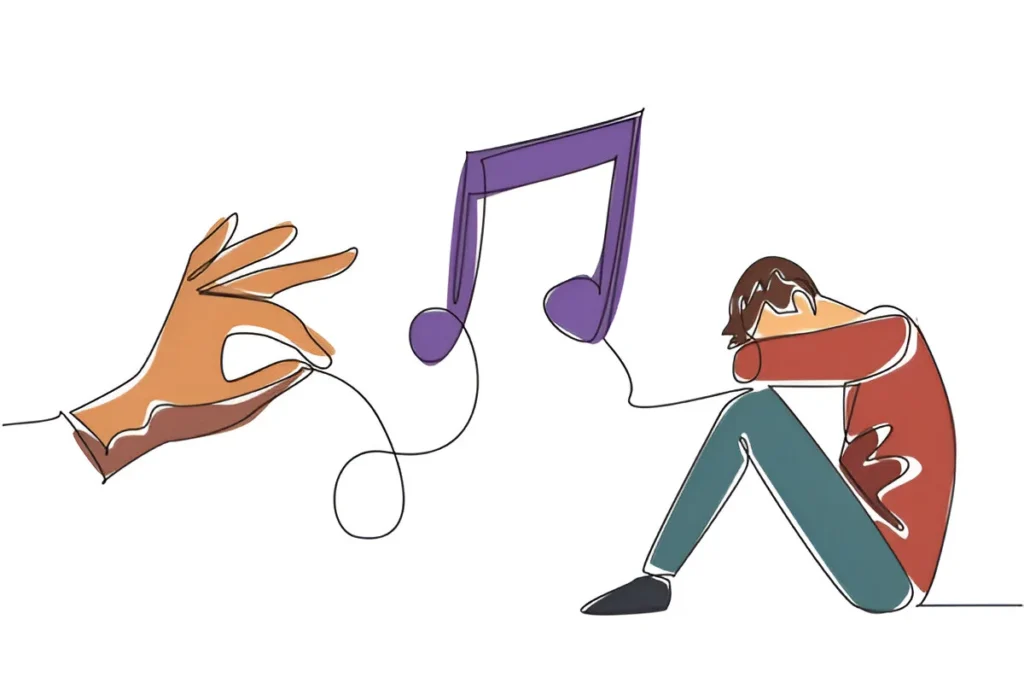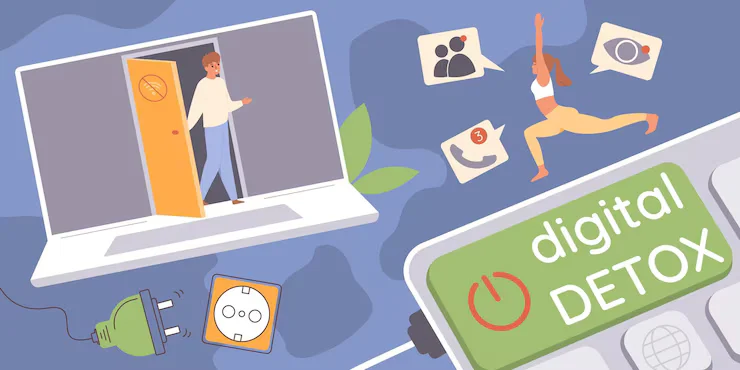-
129, Block-A Bangur Avenue, Mousumi Appartment, Kolkata 700055
129, Block-A Bangur Avenue, Mousumi Appartment, Kolkata 700055

Toxic relationship dynamics can deeply affect your well-being. Learn how mental boundaries and guidance from a reputed counselor can help. There comes a time when certain relationships—whether with a partner, parent, friend, or colleague—begin to erode rather than elevate. You feel emotionally drained, manipulated, or even invisible. These are classic signs of a toxic relationship, and knowing how to set mental boundaries could be your first step toward reclaiming your peace. Why Mental Boundaries Are Crucial for Emotional SafetyCommon Signs You Might Be in a Toxic RelationshipHow Mental Boundaries Help Break the Toxic PatternSteps to Set Mental Boundaries in a Toxic Relationship1. Acknowledge the Pattern2. Define What’s Not Okay3. Use Clear, Calm Communication4. Prepare for Resistance5. Prioritize Self-Care and SupportWhen to Seek Professional HelpHow to Recognize and Exit a Toxic Relationship SafelyFAQs: Most Asked Questions About Toxic Relationships and BoundariesEmpowerment Begins with a Boundary This article offers psychological insights on why boundaries matter, how to create them, and how expert intervention can help you heal and grow, especially if you're struggling to break free from emotional cycles that no longer serve you. Why Mental Boundaries Are Crucial for Emotional Safety We often think of boundaries as physical walls or clearly spoken words. But mental boundaries go much deeper—they protect your emotional well-being, identity, and sense of control in relationships. When these boundaries are absent or violated, you may experience: Chronic self-doubt and anxiety Guilt for asserting needs Emotional exhaustion or dissociation Difficulty trusting others or yourself A blurred sense of who you are Setting mental boundaries becomes not just a healthy choice, but a psychological necessity. Common Signs You Might Be in a Toxic Relationship It can be difficult to identify when a connection becomes unhealthy. Here are signs that may suggest you're in a toxic relationship: You constantly feel like you're "walking on eggshells" Your opinions are dismissed or belittled You feel manipulated through guilt or emotional blackmail There's an imbalance—you're always giving more You’re afraid to speak your mind or express discomfort There's a pattern of gaslighting or emotional invalidation These signs don't just affect your mental state temporarily—they restructure your self-worth, leading to long-term emotional consequences if left unchecked. How Mental Boundaries Help Break the Toxic Pattern Boundaries are the invisible fences we create to protect our energy, emotions, and self-respect. In therapy, mental health experts often stress their value in healing unhealthy dynamics. Here’s how mental...

Emotional healing can be supported through music therapy. Learn how expert-guided practices, backed by a reputed psychological counselor, bring real relief. We’ve all experienced it—that one song that brings tears to your eyes or another that uplifts your spirit instantly. Music isn’t just entertainment; it’s a mirror, a comforter, and sometimes, a healer. As modern therapy evolves, music has emerged as a compelling tool for emotional healing, helping people process trauma, anxiety, depression, and even grief in surprisingly powerful ways. The Psychology Behind Music and EmotionsWhat Is Music Therapy?Emotional Healing Through Music Therapy: A Deep Dive1. Processing Suppressed Emotions2. Rewiring Emotional Memory3. Improving Mood and Motivation4. Encouraging Mindfulness and RelaxationWhy Music Therapy Works: The EvidenceBenefits of Music Therapy for Emotional HealingEmotional Healing in Different ContextsAfter Grief or LossDuring Depression RecoveryFor Anxiety DisordersIn Trauma-Informed CareHow a Professional Makes the DifferenceHow Emotional Healing Works Through SoundFAQs About Music Therapy and Emotional HealingWhen Words Fail, Music Speaks But what makes music such an effective medium for healing? Let’s dive into the science and soul of it. The Psychology Behind Music and Emotions Music is deeply intertwined with human emotion. From lullabies that soothe babies to anthems that unify nations, sound shapes how we feel, think, and remember. Neurologically, music: Stimulates the limbic system (emotional center of the brain) Triggers dopamine release (feel-good neurotransmitter) Helps regulate heart rate and cortisol levels Because of this, music becomes more than just background noise—it becomes a therapeutic bridge to the subconscious. What Is Music Therapy? Music therapy is a clinical, evidence-based practice that uses music interventions to achieve specific goals. Guided by a trained professional—often someone certified in psychology or behavioral sciences—music therapy involves: Listening to curated music selections Writing lyrics or songs Playing instruments Moving to rhythm or sound Exploring guided imagery with music This isn't about learning music or becoming a musician. It's about engaging with music intentionally to process emotions, reduce stress, and restore mental balance. Emotional Healing Through Music Therapy: A Deep Dive Let’s explore how music therapy supports emotional healing, step by step. 1. Processing Suppressed Emotions Many people struggle to verbalize what they feel. Music, with its symbolic and non-verbal nature, gives them a voice. Lyrics can express what clients can't say. Melodies can mirror emotional states, creating validation. Rhythmic drumming or strumming can release tension. 2. Rewiring Emotional Memory Certain songs are tied to personal memories—some joyful, some traumatic. With...

Rebuild Your Social Life with empathy and expert-backed steps. Learn how support, routine, and guidance from a reputed counselor can help. The Quiet After the Storm Emerging from a depressive episode can feel like waking up after a long, heavy storm. The skies are clearer—but you’re still adjusting to the light. Social interaction, once natural or even energizing, might now feel overwhelming or unfamiliar. Reconnecting with people can bring fear of judgment, rejection, or discomfort. But regaining those bonds is essential—not just for emotional recovery, but also for sustaining long-term well-being. The Quiet After the StormWhy Social Connection Is Crucial After DepressionSigns You’re Ready to ReconnectGentle Ways to Rebuild Your Social Life at Your Own Pace1. Start With Low-Energy Social Contact2. Create a Weekly “Social Window”3. Name the Discomfort (It Helps)4. Choose Environments That Match Your Energy5. Celebrate Small WinsReframing Common Fears in Social RecoveryThe Role of Mental Health ProfessionalsHelpful Tools to Support Social HealingMost Asked FAQs About Rebuilding Social Life Post-DepressionConnection Is a Gentle Path, Not a Race Let’s explore how to rebuild your social life after depression in a way that feels supportive, respectful of your pace, and grounded in psychological insights. Why Social Connection Is Crucial After Depression Social support is more than company—it’s protective medicine. Research shows that: Meaningful relationships help regulate mood and stress Isolation can increase the risk of relapse Positive interactions enhance self-esteem and reduce self-doubt But building (or rebuilding) your social life requires more than just showing up. It begins with small, intentional steps, tailored to your comfort level. Signs You’re Ready to Reconnect Before jumping in, check in with yourself. These are signs you may be ready to begin rebuilding: You feel less emotionally overwhelmed by everyday interactions You're curious about seeing friends again (even briefly) You can manage basic routines without emotional burnout You have the energy to respond to messages, make calls, or plan ahead You feel lonely—not just alone—and want to re-engage Even if these feelings are faint or inconsistent, they’re valid starting points. Gentle Ways to Rebuild Your Social Life at Your Own Pace The key is not speed—it’s sustainability. Use the following methods to rebuild your social life gradually and meaningfully: 1. Start With Low-Energy Social Contact Text or email a close friend just to say hello Comment on someone’s social media post Join a casual WhatsApp or interest-based group Reconnect with people you feel safest...

Hello Reader! Welcome to the blog page of Mind’s Eye by Dr. Rupa Talukdar, one of the best psychological counsellor in Kolkata. Going through a depression phase can feel like walking through a long, dark tunnel with no visible end. Everything slows down—motivation, joy, energy, and hope. But the good news is, healing is possible. With the right support, understanding, and inner strength, individuals can not only recover but also thrive back to normal life after a depression phase. As the best psychological counsellor in Kolkata, I’ve seen firsthand how people can regain control, rebuild resilience, and rediscover joy. Recovery is not a destination—it’s a process. Here's how you can take meaningful steps toward reclaiming your life. Understanding the Depression Phase1. Start Small, Stay Consistent2. Rebuild Your Routine3. Seek Professional Guidance4. Reconnect with Your Social Circle5. Reignite Your Passions6. Embrace Self-Compassion7. Mindfulness and Emotional AwarenessKey Signs That Indicate You Are Ready to Thrive Back to Normal Life After a Depression Phase1. Renewed Interest in Daily Activities2. Improved Energy and Motivation3. Emotional Stability4. Healthy Sleep and Appetite Patterns5. Positive Self-Reflection and Self-Esteem6. Willingness to Connect with Others7. Effective Coping Strategies8. Openness to New Experiences9. Regular Check-Ins with the Best Psychological Counsellor in Kolkata10. Hope and Purpose for the FutureExpert-Recommended Strategies for Sustaining Recovery from a Depression Phase Long-Term?1. Ongoing Psychotherapy and Maintenance Therapy2. Well-Being Therapy and Positive Psychology3. Healthy Lifestyle Modifications4. Building a Strong Support Network5. Developing Healthy Coping Mechanisms6. Structured Daily Routine and Goal Setting7. Regular Monitoring and Relapse Prevention8. Self-Compassion and EducationHow Support from the Best Psychological Counsellor in Kolkata Facilitates Your Journey Back to Normalcy?1. Safe and Empathetic Environment2. Early Detection and Tailored Interventions3. Building Self-Awareness and Emotional Resilience4. Developing Effective Coping Strategies5. Goal Setting and Motivation6. Strengthening Relationships and Social Skills7. Ongoing Monitoring and Relapse Prevention8. Boosting Confidence and Self-EsteemFAQConclusion: You Can Thrive Again Understanding the Depression Phase A depression phase is not simply feeling sad. It affects your thoughts, emotions, behavior, and even physical health. You may experience: Persistent sadness or emptiness Loss of interest in daily activities Fatigue and sleep disturbances Difficulty concentrating Feelings of guilt or worthlessness Recognizing these signs is the first step toward seeking help. As the best psychological counsellor in Kolkata, I always emphasize that acknowledging mental health struggles is a strength, not a weakness. 1. Start Small, Stay Consistent One of the biggest challenges after a depression phase is regaining...

Digital Detox Therapy offers relief from tech-induced stress and burnout. Learn how structured screen breaks—when guided by a reputed counselor—support better mental and emotional health. Understanding the Digital Overload We All Live With In a world where we wake up to phone notifications and fall asleep to screen glow, the lines between life and technology are more blurred than ever. While digital tools have brought convenience and connection, they’ve also introduced new levels of mental strain—stress, anxiety, distraction, and burnout. Understanding the Digital Overload We All Live WithWhat Is Digital Detox Therapy?Why Are More People Turning to Digital Detox?How Digital Detox Therapy Works in a Therapeutic SettingWho Really Needs Digital Detox Therapy?Key Psychological Benefits of a Digital DetoxBenefits include:Lifestyle Practices That Support Your Detox JourneyTry these simple yet powerful practices:When to Seek Professional HelpFAQs About Digital Detox TherapyTime to Reclaim Mental Space in a Digital World That’s where Digital Detox Therapy comes in. This modern psychological approach isn’t about giving up technology forever. It’s about restoring balance, protecting your cognitive health, and reconnecting with life offline, mindfully, and purposefully. Let’s explore what digital detox therapy really means, who can benefit from it, and how expert psychological guidance can make the difference. What Is Digital Detox Therapy? Digital Detox Therapy is a structured psychological intervention that encourages individuals to take intentional breaks from screens—be it smartphones, laptops, social media, or streaming platforms. It’s not just a weekend off the grid. It’s a therapeutic process designed to: Help people recognize the emotional and mental cost of constant connectivity Support healthier tech habits Rebuild attention, sleep quality, and interpersonal relationships Reduce anxiety and depressive symptoms tied to digital overuse It’s often recommended or guided by experienced professionals, especially when digital habits start affecting mental, emotional, or social well-being. Why Are More People Turning to Digital Detox? According to multiple studies, the average person spends 7+ hours per day on screens. That number spikes among remote workers, students, and social media users. The result? A rise in: Sleep disturbances Eye strain and fatigue Anxiety and depression Loss of concentration and memory Reduced real-world interaction and self-worth Digital Detox Therapy doesn’t treat screen time as “bad,” but as something to be managed with intention, especially in a culture that values 24/7 availability and performance. How Digital Detox Therapy Works in a Therapeutic Setting In therapy, a digital detox is more than just switching your phone...

Binge Eating Risks in Children can increase with conditions like ADHD. A reputed counselor can help uncover the psychological roots and guide you with actionable strategies to support kids more effectively. How ADHD Increases Binge Eating Risks in Children When parents hear the term “binge eating,” they often associate it with emotional imbalance, poor diet, or unhealthy media exposure. However, one of the most overlooked and under-discussed contributors is Attention-Deficit/Hyperactivity Disorder (ADHD). Children with ADHD often struggle with impulsivity, emotional regulation, and delayed gratification—factors that are closely linked to binge eating behavior. While food might seem like a comfort mechanism, there’s often a deeper, neuropsychological root that parents and caregivers need to understand. How ADHD Increases Binge Eating Risks in ChildrenUnderstanding the Connection: ADHD and Food BehaviorsWhy Are Children With ADHD More Prone to Binge Eating?The Science Behind Binge Eating Risks in Children with ADHDSigns to Watch for in Your ChildHow Parents and Educators Can Support Children with ADHDPractical Tips to Reduce Binge-Eating BehaviorProfessional Interventions That Make a DifferenceFAQs About Binge Eating and ADHD in ChildrenThe Earlier, the Better Let’s explore how ADHD contributes to binge eating risks in children, and more importantly, what families can do about it. Understanding the Connection: ADHD and Food Behaviors ADHD doesn’t just affect attention—it impacts executive functioning, impulse control, and reward processing. All of these neurological factors intersect with how a child responds to food. Why Are Children With ADHD More Prone to Binge Eating? Impulsivity: Kids with ADHD often act before thinking. This can lead to unplanned eating episodes, especially when snacks or sweets are easily accessible. Delayed Gratification: These children may struggle to delay rewards, making it harder to stick to regular mealtimes or portion control. Emotional Dysregulation: They experience emotions more intensely and may use food as a way to self-soothe, especially during moments of frustration or overstimulation. Low Dopamine Levels: ADHD is linked to lower dopamine activity—the neurotransmitter associated with pleasure. Food (especially sugar and fat) temporarily boosts dopamine, encouraging repeated binge behaviors. Routine Struggles: Children with ADHD often thrive on structure, but also have difficulty maintaining it. Irregular eating habits can set the stage for chaotic food intake and binge episodes. The Science Behind Binge Eating Risks in Children with ADHD Neurobiologically, children with ADHD have different brain activation patterns, especially in areas controlling self-monitoring and decision-making. Several studies highlight the overlapping symptoms of ADHD and Binge Eating...